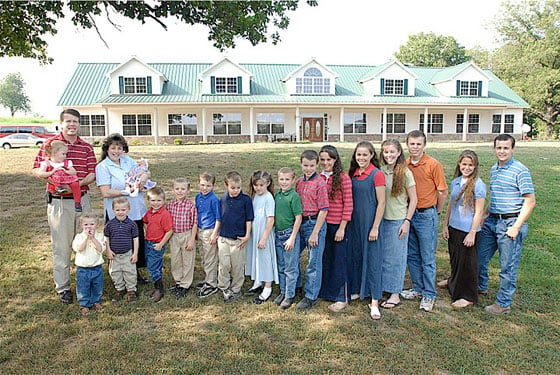I’ve said before that I don’t like this phrase. I think hate is a really strong word, and it is hard to hate one aspect of someone without it bleeding into the way you treat that person. Hate (to dislike intensely or passionately; feel extreme aversion for or extreme hostility toward; to detest, despise or loathe) and Love (a profoundly tender, passionate affection for another person. fondness, predilection, warmth) are antonyms, I simply cannot see how they can be in the same sentence together, or refer to the same person.
There some beliefs and some deeds that I truly do hate. I feel that they cause major damage, harm real people, and disregard humanity. However, I have people in my life, who believe these same things, and do these same deeds. When I think of them in terms of being the people who believe or do those things that I hate, I do not feel loving towards them. I feel stressed, anxious, frustrated. But the fact is, some of these people are still what I would consider close. How is that possible? Well, first off, I do not have an outside source/third party figure or instruction book telling me what I must hate and what I must love, so I live the way I do and I realize that others may live differently regardless of how I may feel about it. If I am relating to someone with whom I know disagrees with me on a particular topic, I do not focus on my feelings about that particular topic. If I relate to these people in other ways, I try not to define them based on the area we disagree in.
When I have times where my strong opposing understanding of an issue threatens to cloud everything in how I relate to that person, I try to bring myself back to balance, remembering the reasons that I have kept that person in my life, remember to love them for those reasons, and agree to disagree. In fact, I think one of the main problems I have with the phrase “Hate the Sin, Love the Sinner” is that it defines the person by the “sin” you are supposed to hate. That is like saying “Hate Homosexuality, love the Homosexual” as if that is all that person is to you. It would be like me saying “I Hate the practice of spanking children, but I sure love spankers.” When you define that person by the thing you hate, by the very thing with which you disagree with them, that hate is all that is left to your relationship. There is no love left.
Lets say I am a Vegetarian, the thought of eating something that once had a face repulses me, I feel strongly about how cruelly animals are treated in the food industry. I cannot fathom how anyone can be OK with eating meat when the very thought of it makes me feel sick. However, I have several friends and family members who are not vegetarian, we are aware of each others difference of opinion, and have even had a few debates on the topic. But we definitely do not agree. However, lets say one of these friends is a great jogging companion, and another is always up on the latest news stories that I love to discuss, and another gardens at the same community garden I do and we always end up exchanging tips and chatting together about the rest of our lives. When I meet them, the first thing that comes through my mind is not “carnivore!”. When I hang out with them I am not plotting how I can insert little digs into the conversation against eating meat. We hang out, we talk, we enjoy each other’s company. We may even share meals together, although we might not be eating the same things.
However, the “friend” who thinks I am an idiot for being a Vegetarian, and constantly rags me about what I ate that day, and sends me emails about the benefits of eating meat and the downsides of being vegetarian, who makes me the butt of their jokes at parties, who perpetually makes completely unrelated assumptions about me based on my eating habits, who provokes discussion and then refuses to listen to my perspective and dismisses and ignores every explanation of why I feel the way I do, that friend, is not truly a friend. They are not someone I would want to hang out with, or see on a regular basis, or confide in, or ask advice from. Because that is not respect, that is not friendship, that is not love.
Since Haley and I have come out, some people that we have known for some time, and still disagree strongly with our reality, have been able to still communicate respectfully, listen to what our perspective is, relate to us on other levels, express concern and ask questions without being derogatory or dismissive. Others have not been able to do this. Why is it that people with seemingly the same beliefs can differ so much in their ability to relate to us? The answer isn’t that some are magically able to “Hate the sin, love the sinner”, it’s that they are willing to practice tolerance.
This may sound a little different coming from me, because I usually choose to use the word “Acceptance”. But some recent research on these different terms has cleared up some prior confusion on my part. I grew up with people who claimed they didn’t hate anyone (remember? They “love” sinners.) I even claimed to “love sinners while hating their sin” myself once upon a time. I understood tolerance to mean extreme distaste and dislike and disapproval, coupled with an ability to refrain oneself from violence towards the person you felt that way about. I felt that acceptance better expressed an ability to disagree, but be OK with that person living their own life.
In reality, The definition for the term Tolerance is:
A fair, objective, and permissive attitude toward opinions and practices that differ from one’s own.
Interest in and concern for ideas, opinions, practices, etc., foreign to one’s own; a liberal, undogmatic viewpoint.
Synonyms for tolerance are:
Patience, sufferance, forbearance; liberality, impartiality, open-mindedness. agree in allowing the right of something that one does not approve
This term encompasses perfectly what I am asking from people who do not agree with the reality of LGBTQ persons, and/or the exact ways they may choose to live their lives. Being willing to hear another person, seek to be fair and objective and impartial, is exactly what I meant to say by using the term “Acceptance” (A term which can ironically mean approval, something I was never trying to ask of anyone) I am sorry for any confusion this may have caused. I found myself steering away from the term “tolerance” because of the false understanding I had been given of what it meant. Many people who claim to be tolerant think that minorities should feel grateful that they are not being hung in the town square. They make no bones about the fact that they “Hate the sin.” And the “love the sinner” begins to sound more like “don’t kill the sinner”. This is not tolerance.
I know people who have absolutely no problem with me, when I am with them I feel comfortable, at-ease, not stressed, relaxed. I know people who disagree with my sexuality and/or my marriage or my spouse’s gender identity, but are tolerant of our differences. When I am with them I feel comfortable, at-ease, not stressed, relaxed. These people do not define me by whatever it is they disagree with me on. They respect me and my views, they are able to listen to my perspective and ask questions or express concerns respectfully. They seek to be fair and impartial regardless of their personal feelings, and they do not actively fight against me or spread lies about me.
I also know people who disagree with me and also claim to be tolerant. But around them, I feel nervous, on-edge, tense, slightly nauseous, on-guard, afraid. This is because they are not actually tolerant. They are trying to uphold that impossible dichotomy of “Hate the sin, Love the sinner.” They define me by whatever issue they disagree with me on. Their conversation is sprinkled with opinions and judgments and pronouncements from their understanding of spirituality, they find it difficult to relate to me in other ways or on other topics. I have trouble feeling close to these people, even when I want very badly to feel close to them. When it is hard to relax around someone, it is hard to feel safe around that person.
I have heard people try to defend the phrase “Hate the Sin, Love the sinner” by saying that all of us our sinners, that they hate every sin equally and that they themselves sin. I’m not going to get into whether or not these people actually hate every sin equally, but I understand that they may believe that a certain list of ideas or actions are “sinful” and should be avoided. And by all means, live according to your beliefs and avoid the ideas or actions you disagree with in your own day to day life. Every person should have the right to live their personal life as it affects them in the way they feel best benefits them. But that same truth also goes for people who are different from you. Why define a person based on your beliefs which that person (obviously) does not have? Change the phrase to “Hate my actions, love myself” if you like, but stop applying it to anyone and everyone who does not live life your way.















